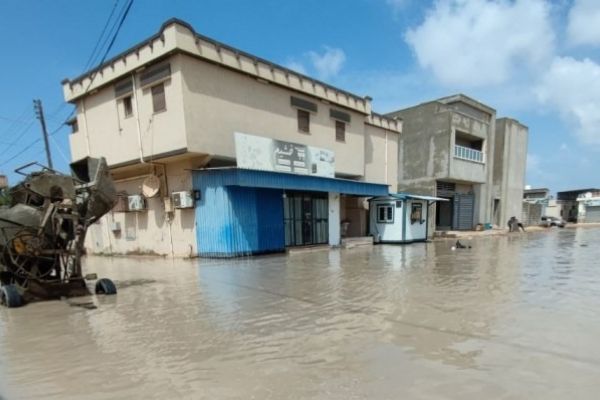In September 2023, Libya was struck by an unprecedented and catastrophic natural disaster. The Mediterranean storm Daniel unleashed its fury, resulting in devastating floods that swept across the nation. This article explores the tragic events that unfolded during this disaster, the profound impact it had on Libya, and the response from both local and international authorities. Follow Our website TheGossipsWorld Media for the latest updates!!!!!
Libya Faces Catastrophic Flooding
Page Contents
Libya Faces Catastrophic Flooding: In September 2023, Libya was thrust into a dire crisis as it grappled with catastrophic flooding brought about by the relentless Mediterranean storm Daniel. This natural disaster would prove to be one of the most devastating events in the nation’s recent history, causing widespread destruction, a tragic loss of life, and leaving thousands missing in its wake.
The Unleashing of Storm Daniel
On that fateful day in September, storm Daniel made landfall in Libya with unrelenting force. This powerful storm brought with it torrential rainfall of unparalleled magnitude, leading to catastrophic flooding and extensive damage. The dams in the region, ill-prepared for the deluge, crumbled under the pressure, resulting in widespread loss of life and colossal destruction of property.
Dramatic footage shared on social media and broadcast by eastern Libya’s Almostkbal TV depicted a grim scene of individuals stranded on the roofs of their vehicles, desperately pleading for assistance. Meanwhile, the relentless waters swept away cars and entire buildings, leaving behind a trail of destruction that defied imagination.
The Grim Toll
As the nation grappled with the aftermath of the disaster, the gravity of the situation became shockingly apparent. Thousands were feared dead, and the number of missing persons was staggering. Local officials, overwhelmed by the scale of the tragedy, reported that the death toll had surpassed 2,000 in Derna alone, with thousands more unaccounted for. It’s essential to note that some experts believed that the final death toll could potentially rise even higher, emphasizing the enormity of the catastrophe.
Derna, a city that had experienced periods of extremist group control in the past, bore the brunt of the devastation. Entire neighborhoods were obliterated as the collapse of two dams submerged much of the area. Promptly, authorities declared Derna a “disaster city,” a designation that underscored the severity of the crisis.
The Impact on Infrastructure and Governance
Libya’s ongoing political division and the absence of a central government since the 2011 uprising have had dire consequences. Inadequate infrastructure and minimal regulation of construction projects were exposed as vulnerabilities when Storm Daniel struck. The disaster resulted in a widespread humanitarian crisis, further highlighting the pressing need for effective governance and infrastructure development.
In response to the tragedy, Libya’s eastern-based parliament declared three days of mourning. Simultaneously, Abdulhamid al-Dbeibah, the Prime Minister of the interim government in Tripoli, declared three days of mourning in all the affected cities, categorizing them as “disaster areas.” Although Dbeibah’s administration had limited influence in eastern Libya, he directed all state agencies to “immediately address” the damage and flooding in the affected cities.
International Response
Confronted with such an overwhelming disaster, international solidarity became indispensable. Foreign governments, including the United Arab Emirates, Turkey, Algeria, and Egypt, expressed their condolences and extended offers of assistance to Libya. This international response underscored the gravity of the situation and the urgent need for immediate humanitarian aid.
Local and international agencies received urgent appeals to assist in the affected areas. Georgette Gagnon, the United Nations’ humanitarian coordinator for Libya, emphasized the gravity of the situation, noting that numerous villages and towns had been “severely affected” by widespread flooding, infrastructure damage, and loss of life.




